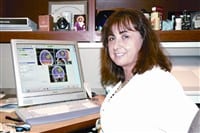Perspective Needed On ‘Older Doctors’
The study became a national story, and you could almost hear the nerves of ‘older doctors’ around the country being rubbed raw as they read the news.
A Harvard Medical School research study released in February suggested that ‘older doctors’ don’t know as much, offer lower-quality care, and pose greater risks to patients than physicians recently out of medical school.
The study was not a clinical evaluation, but rather an analysis of 60 other studies spanning four decades, a study of studies actually. But it was described as a “wake-up call to the medical profession,” and the “most comprehensive look at the importance of age and years since medical school in determining physicians’ skills.”
The authors acknowledged the study had limitations, and they agreed with other experts that age is just one factor for patients to consider. But it didn’t specify other factors nor define at what age a doctor becomes ‘older.’
The question of age and how it affects performance is a legitimate one in any profession. But a key question from this study should be this: how should patients react?
Does the patient’s road to good health start at the physician’s fountain of youth? If your doctor is over 50, or 20 years out of medical school, do you look to the younger generation? As a practicing physician of some 25 years, let me offer some perspective.
It’s generally accepted that medical knowledge changes every five years and doubles every 10 years. The human body hasn’t changed, but how we diagnose, treat, and care for it surely has.
Medicine is constantly in development and discovery: new technologies, better procedures, new and better drugs, new revelations of how the body works. In some cases, what was considered ‘standard of care’ just a few years ago is now archaic, with new standards and recommendations being issued all the time.
The physician faces the challenging task of keeping up with a body of knowledge that is constantly exploding, and no single person can retain it all. Hundreds of studies are reported every week, as researchers around the globe investigate diseases, treatments, cures, new procedures and thousands of other aspects of medical care.
So, when news is reported that ‘older doctors’ allegedly pose a greater risk to patients, we should seek context and remember some important concepts.
Each specialty and sub-specialty in medicine (cardiology, obstetrics, pediatrics, neurosurgery, etc.), has a national board certifying physicians on their competency and skill. It’s a rigorous testing process to assure a physician’s knowledge stays current. Many boards now re-certify every 10 years, and some even require annual testing. Thus, continuing medical education – a critical element to performance and perhaps the strongest indicator of a doctor’s ability – is a career-long necessity. It’s also required to renew one’s license to practice medicine in Massachusetts.
Experience is a premium in all professions. While some patients want a younger physician, on the premise that he or she will have the latest information and training, the experience of older doctors can be priceless. They’ve examined many patients and have seen, treated, and cured many varied and complex conditions, thus gaining wisdom and perspective from practice.
Trust is critical. How well the physician earns the patient’s trust – and how much the patient trusts the doctor – is of paramount importance. Trust grows with time, and with today’s trend of the patient becoming a partner in care with the physician, this trait takes on added importance.
As does teamwork among physicians. Referrals to specialists by primary care providers are common for many conditions, and that benefits patients, because most patients are now cared for by more than one physician.
So here’s my prescription for patients: consider multiple factors: experience, knowledge, the physician-patient relationship. Make informed judgments about your care. We examine many factors when we invest money or choose a car or house. We should do the same with our physicians. It’s just good common sense.
We all know physicians at their professional peak who are well into their 70s. When a colleague of mine, a 73-year-old neurosurgeon whom I’d recommend to anyone, was told about the Harvard study, he simply said, “Tell that to the 44-year-old patient I just operated on for a brain tumor.”
The patient is doing fine. And so is the physician.
Alan C. Woodward, M.D. is president of the Massachusetts Medical Society and Chief of Emergency Services at Emerson Hospital in Concord, Mass.

